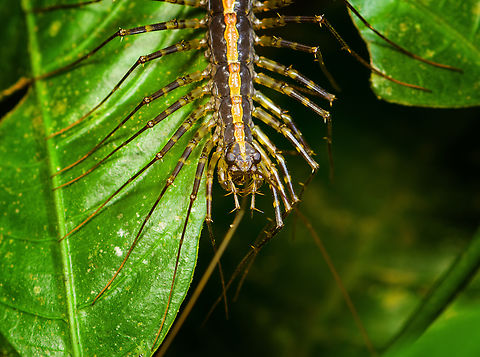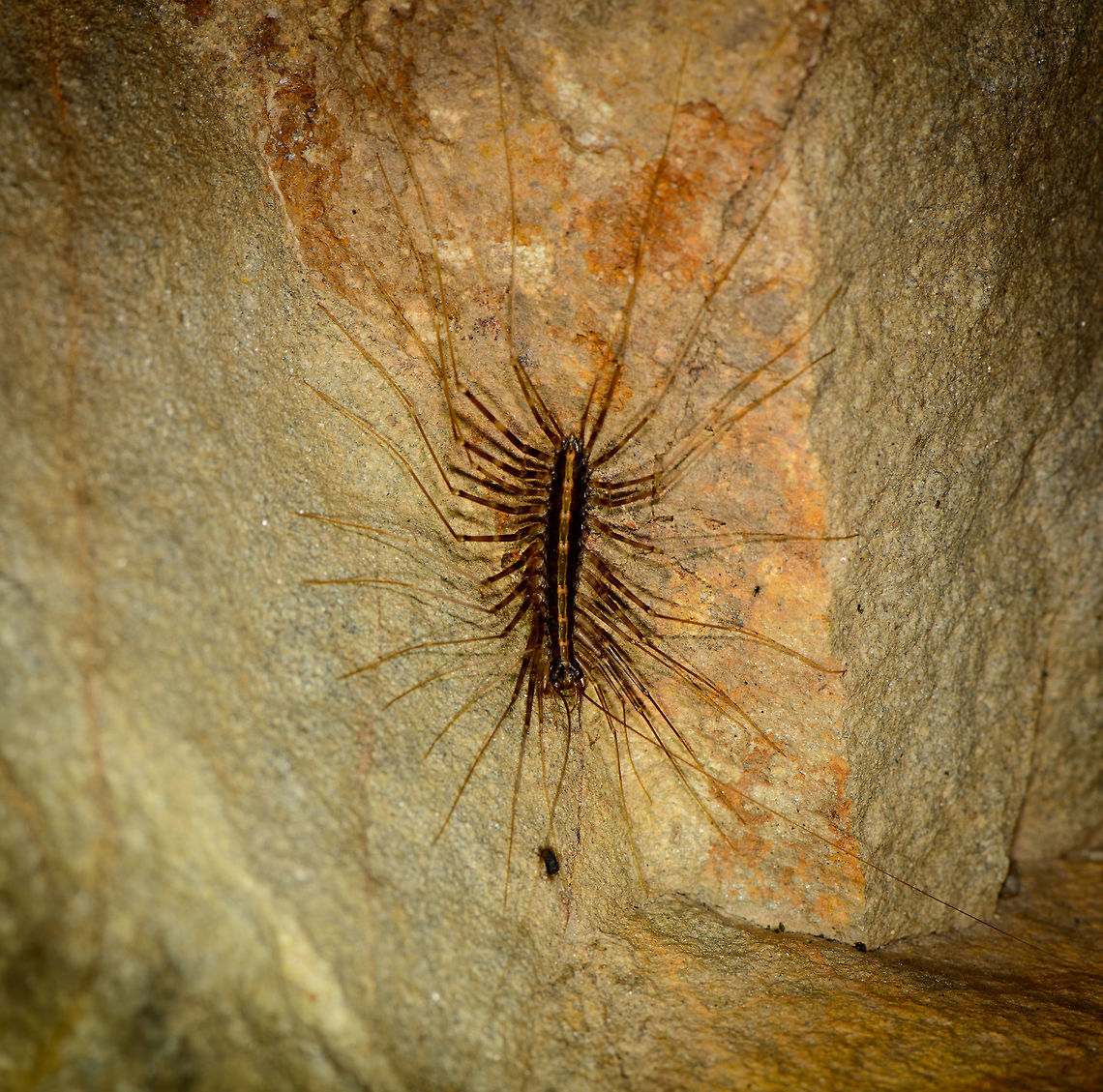
Sphendononema guildingii is a centipede in the order Scutigeromorpha that is common and widespread from the West Indies and Cental America south to Bolivia and Paraguay, recorded on altitudes from 60 to 2200m.
Similar species: House Centipedes
By Ferdy Christant
All rights reserved
Uploaded Mar 21, 2017. Captured Oct 18, 2016 21:32.


comments (6)
Not an "insect" by todays standards of course (if you take the vernacular term to be equal to the taxon Insecta that is, which is not necessarily true) but in Linnaeus' time you would have been spot on ;o)
According to a recent publication by Chagas et al. (2014) titled "The centipedes (Arthropoda, Myriapoda,
Chilopoda) from Colombia: Part I. Scutigeromorpha and Scolopendromorpha" there is only one species known from Colombia, so I have taken the liberty to "identify" it as such ... until science tells us otherwise. Posted 8 years ago, modified 8 years ago
https://www.jungledragon.com/wildlife/browse/animalia/arthropoda
But, my hint above about Linnaeus is not without reason. There is no rule that defines a continuous equivalency between (ever changing!!) taxonomic "content" of a taxon name and the terms in natural languages with the same etymological base. There is no reason why the two, over time, should not have diverged to be "false friends" of sorts.
When Linnaeus pitched his naming system, that still forms the basis of our "current" taxonomy, his view of the taxon Insecta was (VERY) much different from todays Insecta as used by current taxonomists. In fact, the Insecta sensu Linneaus would be more or less the equivalent of todays Arthropoda (including spiders, millipedes, centipedes, crustaceans etc.)
On a side note: I put "current" in quotation marks because the taxonomic system is actually not so current anymore as everyone agrees that a cladistic nomenclature would be a better way to express the state of things.
Back to Insecta vs "insects". If it is fair to assume that in Linnaeus' day and age the taxonomic term Insecta and the natural language term "insects" would be understood to mean more or less the same thing, you need to ask the question if it is equally fair to assume that the content of the terms has changed in the same way over time. Natural language is the domain of those who speak it. The meaning of words is defined by what the users of the language understand it to be and this is in constant flux. The meaning of words in our natural language may or may not change drastically over time. Many speakers of natural languages using terms that sound like Insecta (en:insects, nl:insecten, de:Insekten etc etc) still use the term widely equivalent to what it would have meant in the 18th century. Many speakers of these natural langiages still refer to a spider or a centipede as an "insect" (but slightly less so for crustaceans like lobsters or the like). Meantime the content of the taxon Insecta _has_ changed drastically, but that's the fault of the scientists (actually the taxonomic term Insecta should have been dropped looooong ago, as the content has simply changed way too much from its original meaning). One might argue that it is "scientific arrogance" to assume that natural language should "naturally" follow all the quircky turns that scientists have seen fit to implement for their terminology. Natural language has a dynamic of its own and is defined by what the users of the language understand it to mean in their communication efforts, not by what scientist would like to dictate. Only recently some groups of hexapods such as the Collembola (springtails) have been kicked out of the Insecta by taxonomists. Do they really expect all non-taxonomically expert users of the English language to understand this and implement it in their daily usage of the term "insect"? Yeah, right ;o)
So, your usage of the term "insect" for a centipede is not actually wrong in my humble opinion. It just illustrates how the term "insect" and the taxon Insecta have drifted apart - even as used by the more taxonomically educated users of the language. But there will also always be those who tell you off, for calling a spider or a centipede an insect (like me today :o)
Over time people like me telling other people off that a spider is not an insect just to earn their own place in the spotlights for "knowing better" may change how the "general public" uses the term insect and it may reconverge to a meaning closer to the taxonomic state of Insecta - but then again, it may equally likely not be so and I will just look stupid for trying to "correct" you :o) Posted 8 years ago, modified 8 years ago
https://nl.wikipedia.org/wiki/Spinduizendpoot Posted 8 years ago